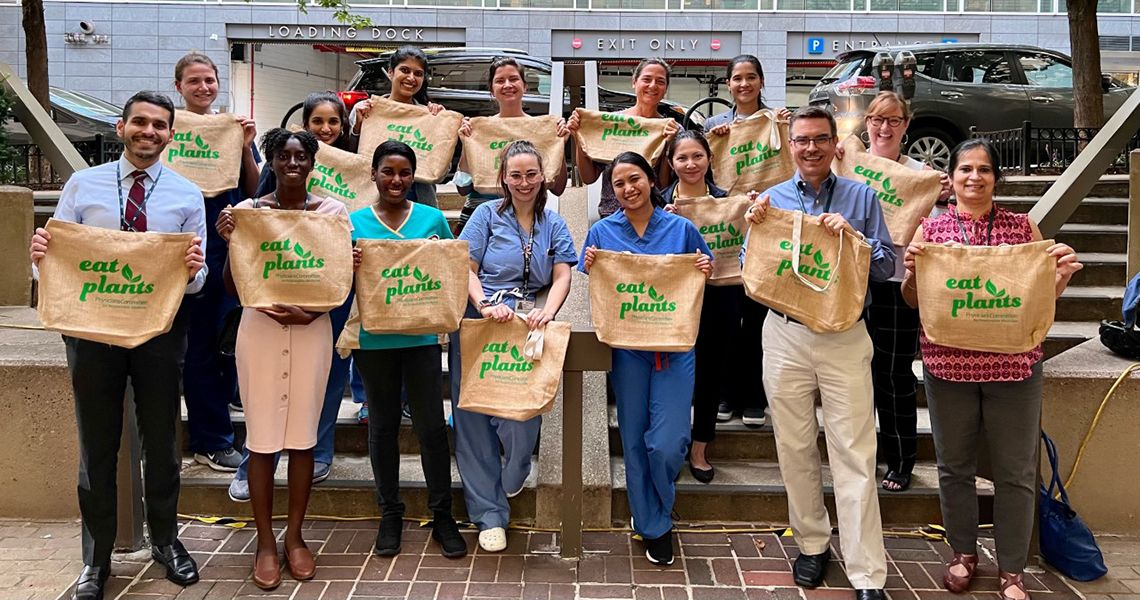
Chronic disease is the leading cause of death and disability in the US affecting over 60% of adults. According to the World Health Organization (WHO), 80% of heart disease, stroke and type 2 diabetes and 40% of cancers could be prevented with improvements in diet and lifestyle. Unfortunately, the average physician is inadequately trained to help their patients make meaningful lifestyle change. Lifestyle medicine is the use of a whole food-plant predominant diet, regular physical activity, restorative sleep, stress management, avoidance of risky substances and positive social connection in the prevention, treatment and reversal of chronic disease. The Lifestyle Medicine Track at GW is for those residents who want to improve their own lifestyle and gain the knowledge and skills needed to help their patients make and sustain healthy lifestyle change. Residents and fellows who complete the Lifestyle Medicine Residency Curriculum (LMRC) will become board eligible in Lifestyle Medicine at the completion of the program.
WHO: All primary care residents and interested categorical IM residents and fellows in medicine subspecialties.
WHAT: The LMRC consists of both Educational and Practicum components.
- Educational Component [100 hours]
- 40 hours of didactic units covering all areas of lifestyle medicine and behavior change, delivered via an online learning management system from the American College of Lifestyle Medicine
- 60 hours of application activities done on your own and with fellow participants. Examples of application activities include journal club, meditation experiences, running club, culinary medicine experiences and much more.
- Practicum Component
- 400 lifestyle medicine related patient encounters
- 20 hours of intensive therapeutic lifestyle change (ITLC) program experience
- 20 hours of group facilitation experience.
WHEN: The track is designed to be completed over 24 months from January of the intern year through January of the third year. Time will be set aside during clinic weeks to complete the didactic and experiential components.
WHY: Lifestyle medicine perfectly complements traditional medicine training providing knowledge and skills to address the root causes of chronic disease. Mastery of behavior change and coaching skills enables physicians to help patients take control of their health and make lasting change.
HOW: Sign up occurs after acceptance to the program but be sure to express your interest during the application process.
For more information:
- Lifestyle Medicine at GW
- Lifestyle Medicine Residency Curriculum (LMRC)
- American College of Lifestyle Medicine (ACLM)
- American Board of Lifestyle Medicine (ABLM)
